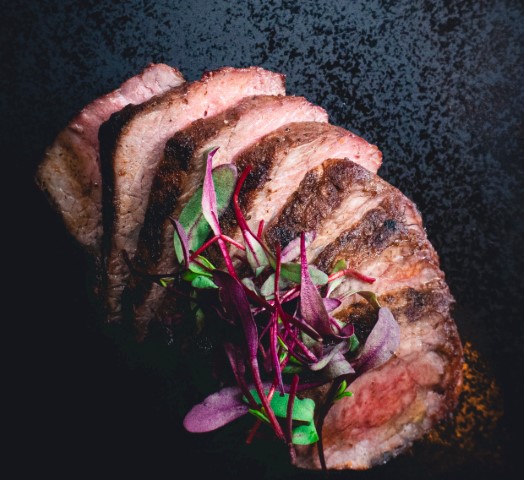The word Wagyu refers to all Japanese beef cattle ('Wa'
means Japanese and 'gyu' means cattle). This is the breed that produces Kobe
beef, named for the city where the cattle were first bred 170 years ago. The
original import of these cattle to the U.S. in 1976 consisted of two Tottori
Black Wagyu and two Kumamoto Red Wagyu bulls.
Wagyu were derived from native Asian cattle which were
crossed with British and European breeds in the late 1800s. Although the breed
was closed to outside bloodlines in 1910, regional isolation has produced a
number of different lines with varying conformations:
Tajima – These were used to pull carts and ploughs so they
developed larger forequarters and lighter hindquarters. They are generally
smaller-framed with slower growth rates but produce excellent meat quality.
Tottori – These were pack animals in the grain industry so
they are larger animals with straight, strong backlines and generally good
growth rates but variable meat quality.
Shimane – These are large-framed cattle with average growth
rates and meat quality.
Kochi – These red lines were strongly influenced by Korean
lines.
Kumamoto – These red lines have a Simmental influence and
were mostly bred in a region where there was an abundance of grassland. Wagyu
is a horned breed and can be either black or red. Black animals are perceived
to have the best quality carcass. Calves are vigorous and average 70 pounds
when born. Wagyu are renowned for their marbling, calving ease, early puberty
and good fertility, docile temperament, and are hardy and adaptive to different
environments.

